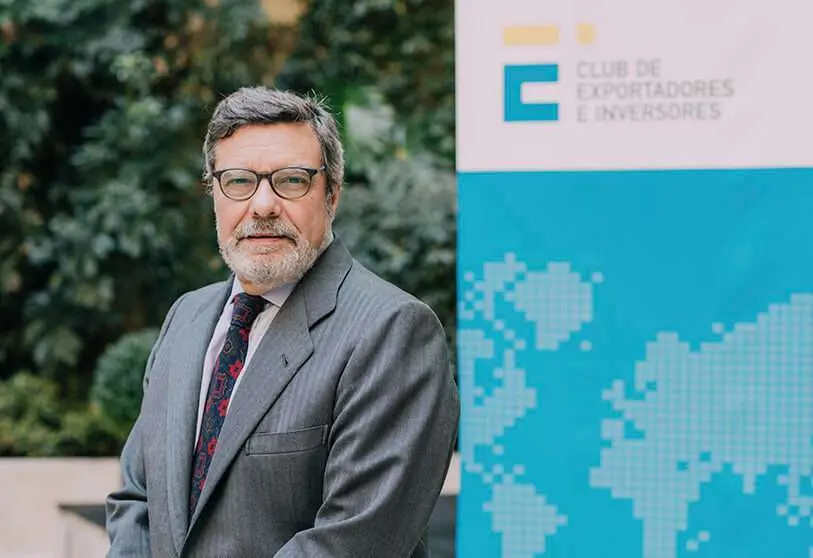Experts brought together by the Exporters' Club analyse the consequences of the war in Ukraine for internationalised Spanish companies

The Spanish Exporters and Investors Club, in collaboration with the consultancy firm Iberglobal, has brought together different experts in foreign trade and diplomacy in a web seminar with the aim of analysing the consequences of the war in Ukraine for Spanish companies operating abroad.
The session, moderated by Antonio Bonet, president of the Exporters' Club, was attended by Fernando Salazar, president of CESCE; Alfonso Tena, director of institutional relations at Indra; and José María Viñals, international trade and sanctions partner at Squire Patton Boogs.
The president of CESCE began his speech by referring to the more than 15,000 Spanish companies that operate in Ukraine, Russia and Belarus, and which have been directly affected by the conflict. "Spanish companies generate an annual volume of imports and exports with Russia and Ukraine of more than 10,000 million euros", said Salazar, who was optimistic about the situation of the rest of the internationalised companies that do not operate in these territories: "For the moment, we are not noticing that our companies are having problems derived from the conflict in any other country".
Alfonso Tena, from Indra, also expressed this view, acknowledging that his company, which does not operate in Russia and Ukraine, is not having any problems beyond those generated by the disruption of the supply chain, which, as he pointed out, "was a situation that had manifested itself before the outbreak of the invasion".
José María Viñals focused his speech on analysing the effects that the international sanctions imposed on Russia could have on Spanish companies. Viñals recommended that companies should remain alert to the new regulatory measures that appear every day and be very clear about their risks with respect to Russia: "Companies should be very aware of their level of relations with Russia and how the sanctions may affect the contractual relations they have previously established with Russian operators or those from sanctioned countries".
On this issue, Fernando Salazar pointed out that the fines imposed by the sanctions are not covered by the insurance policies that companies have taken out. "The insurances only cover those operations prior to the conflict that have been affected by a subsequent sanction on the client", he clarified.

Viñals also warned: "Companies must be especially careful not to be used to triangulate their products and that, in the end, they form part of the supply chain of a final product that is made in one of the sanctioned countries". To this end, he recommended that companies "establish compliance policies and diligence through, for example, contractual clauses that prevent their clients from carrying out this type of action".
When asked about the possibility of the United States imposing secondary sanctions on Russia that could directly affect internationalised Spanish companies, Viñals ruled out that, "for the moment", these will be implemented. However, he recalled: "The escalation of the conflict continues to increase and the clamour from Congress in the United States is growing, so we cannot be sure that in the future these types of procedures will not be used".
The experts brought together by the Exporters' Club and Iberglobal agreed that, despite the complicated situation, it is possible that various opportunities could arise for Spanish companies and for international markets in general.
Fernando Salazar, President of CESCE, spoke along these lines, pointing out that the events of recent months have served to show "how interdependent we are", which in turn will serve to "shorten value chains and diversify further". José María Viñals added that this situation will lead to "value chains that, although more expensive, will be shorter".
Some other opportunities pointed out by the different participants in the session have to do with the promotion of alternative energies, which stems from the energy dependence that, once again, has become evident with this invasion; the diversification of foreign trade by companies, which will mean that national companies will not focus on a single market; "or the opportunities for various sectors that arise from the increase in defence spending recently announced by the Spanish government, in line with the rest of the countries around us", highlighted Alfonso Tena, from Indra.









